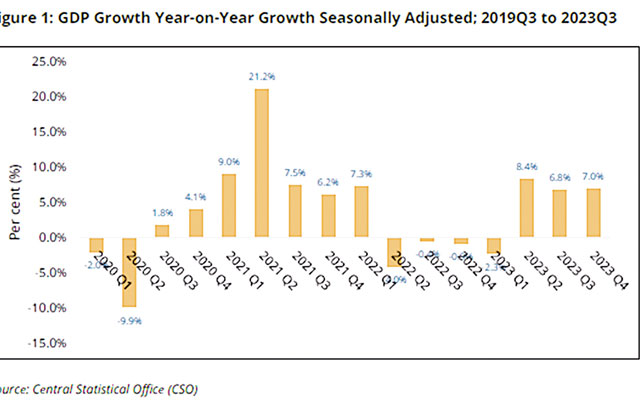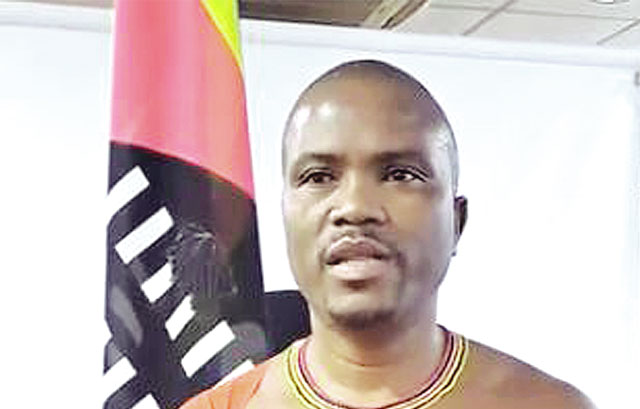By King’s Office Correspondent | 2019-06-13

His Majesty the King yesterday met ‘the people who connect the world’.
It is said that every time you make a phone call via mobile, access the Internet or send an email, you are benefitting from the work of the International Telecommunication Union (ITU).
The meeting took place at the offices of the ITU, where he was hosted by its Secretary General Houlin Zhao. Also present was Minister of ICT Princess Sikhanyiso, Minister of Foreign Affairs and International Corparation Thuli Dladla and Minister of Labour and Social Security Makhosi Vilakati.
Networks
Zhao briefed His Majesty about the work of ITU, which was founded in 1865 to facilitate international connectivity in communications networks.
The organisation allocates global radio spectrum and satellite orbits, develops the technical standards that ensure networks and technologies seamlessly interconnect, and strive to improve access to ICTs in all communities worldwide.
His Majesty the King appreciated the visit and commended the organisation for the work it does in connecting the world.
He urged a continued close working relationship with the ICT sector in Eswatini, which aspires to provide a world class telecommunications infrastructure that would facilitate her aspirations to attain developed status.
He noted that the world had evolved and was moving into the 4th Industrial Revolution where connectivity that facilitates the success of telemedicine, e-commerce, e-learning, and many other inventions that require a high level telecommunications infrastructure.
Private Sector
According to its official website, ITU embodies principles of public-private partnership, with its current membership of 193 countries and over 800 private-sector entities and academic institutions. ITU membership represents a cross-section of the global ICT sector, from the world's largest vendors, manufacturers and telecom operators to small, innovative players and SMEs working with new and emerging technologies, along with leading R&D institutions and academia.
Founded on the principle of international cooperation between governments (Member States) and the private sector (Sector Members, Associates and Academia), ITU is the premier global forum through which parties work towards consensus on a wide range of issues affecting the future direction of the ICT industry.
Originally founded in 1865 to promote cooperation among international telegraphy networks of the day, ITU predates many other standardisation bodies and its long and distinguished history contains a number of important 'firsts', such as the standardisation of the use of the Morse code and the world's first radio communication and fixed telecommunication networks.
Later in the day, His Majesty visited the headquarters of the World Trade organisation (WTO), where he was received by the Director General Roberto Azavedo.
They held various discussions on the work of the WTO and general trade issues affecting the globe, including Eswatini’s bid to host the Africa Continental Free Trade Agreement (AfCTA) Secretariat. The primary purpose of the WTO is to open trade for the benefit of all.
The WTO chief said his organisation was willing to support capacitate the kingdom on trade issues, while His Majesty acknowledged the role of WTO in ensuring fairness in trade as this had a huge bearing on the economies of countries, particularly those of smaller size.
delegates
According to its official site, the World Trade Organisation (WTO) deals with the rules of trade between nations. It oversees WTO agreements that are negotiated and signed by the bulk of the world’s trading nations and ratified in their parliaments to ensure that trade flows as smoothly, predictably and freely as possible.
All major decisions are made by the WTO's member governments: either by ministers who usually meet at least every two years, or by their ambassadors or delegates who meet regularly in Geneva.
The WTO has many roles: it operates a global system of trade rules, it acts as a forum for negotiating trade agreements, it settles trade disputes between its members and it supports the needs of developing countries.
share story
Post Your Comments Below

Eswatini's economic activity, measured by Gross Domestic Product (GDP), grew at a steady pace of ...
Over 2 000 interned paramedics are said to be unemployed 10 years after completing their training...
On Saturday One Billion Rising Eswatini held a mountain circle hike in partnership with the Proje...

There is tension mounting between members of Parliament and their constituency headmen, who are n...
All material © Swazi Observer. Material may not be published or reproduced in any form without prior written permission.
Design by Real Image Internet